TIPPS for Stara Vlaška
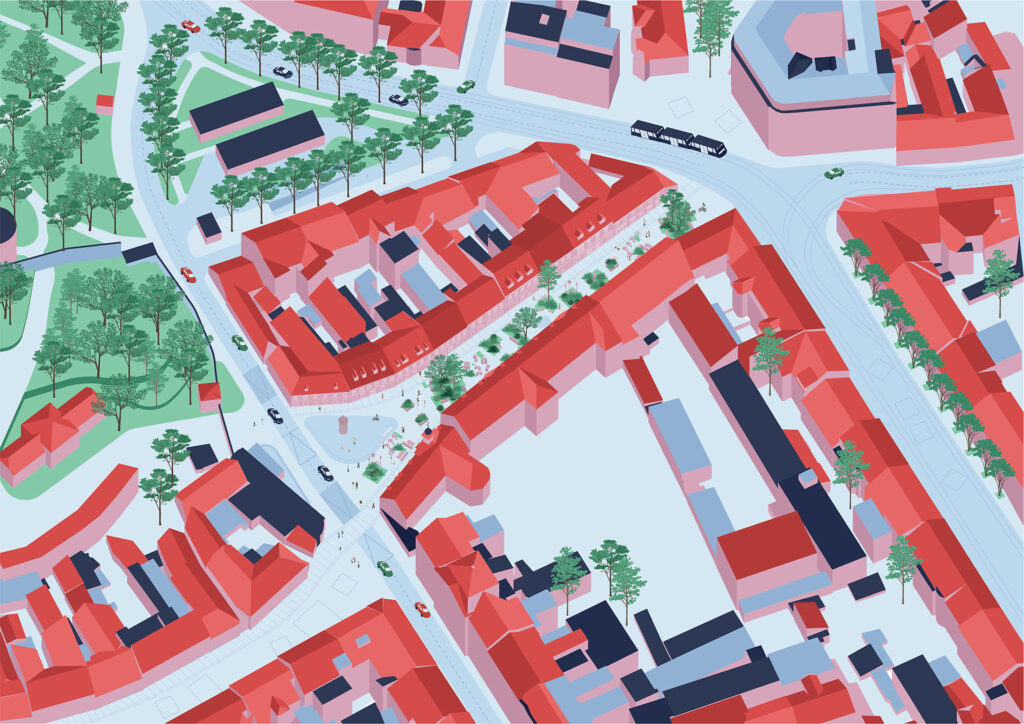
Observing the public, pedestrian, and traffic zones of the city of Zagreb, one quickly notices how the city, even though seemingly green, leaves the main pedestrian zone of the city center rather gray. Trees which are planted along some of the city center’s most prominent traffic arteries are missing or scarce within the pedestrian zones. Areas which have recently been redesignated into pedestrian streets remain as fields of asphalt and concrete. Even though the spaces were reclaimed by pedestrians, they still experientially remain very much within the domain of the car.
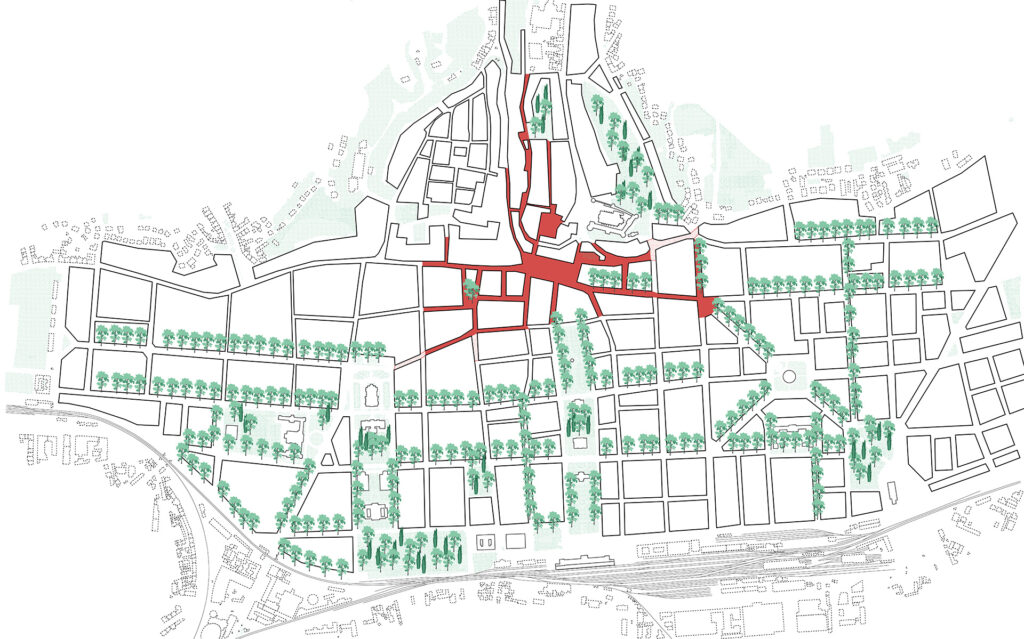
Even the functionality of the newly claimed pedestrian zones is often left unresolved, filled sporadically with the terraces of surrounding cafes and restaurants. The public space remains thus but a thoroughfare, seemingly removed from car traffic, but lacking an ambiance which would invite users to linger.
With today’s alarming climate catastrophe and crisis, and with the increase of awareness of the importance of a holistic and ecological approach to designing public spaces, as well as due to our increasing knowledge of the importance, needs and benefits of cohabitating with other plant and animal life – even within the urban context – there is an imminent need of applying this knowledge and acknowledging our current condition in the process of city planning, especially when it comes to the design of the public realm.
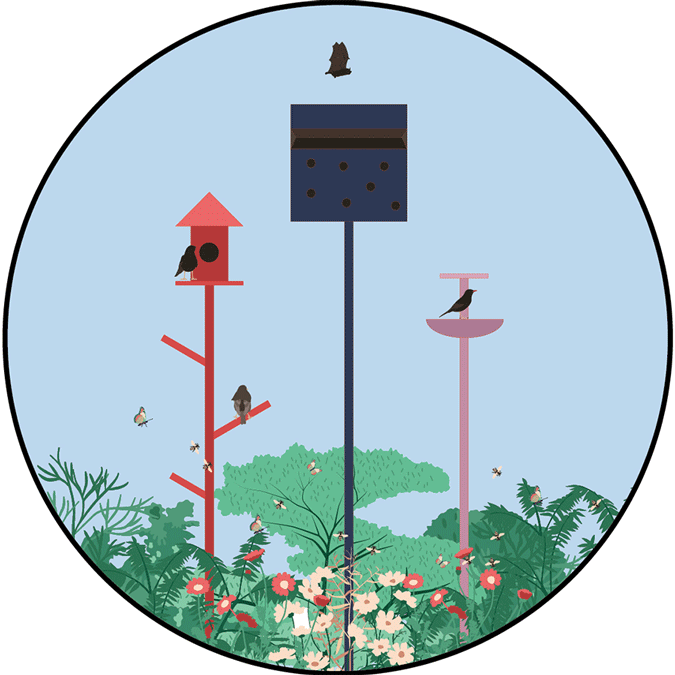
The “Toolkit for Inclusive and Productive Public Spaces” (TIPPS) positions itself as a first step towards a greener, healthier and more diverse future within our cities through a system of plug-in modular elements which enrich public spaces on multiple scales. The Stara Vlaška street is seen as a pilot site after which the system could be adapted and developed to be applied throughout the city of Zagreb, as well as other locations.
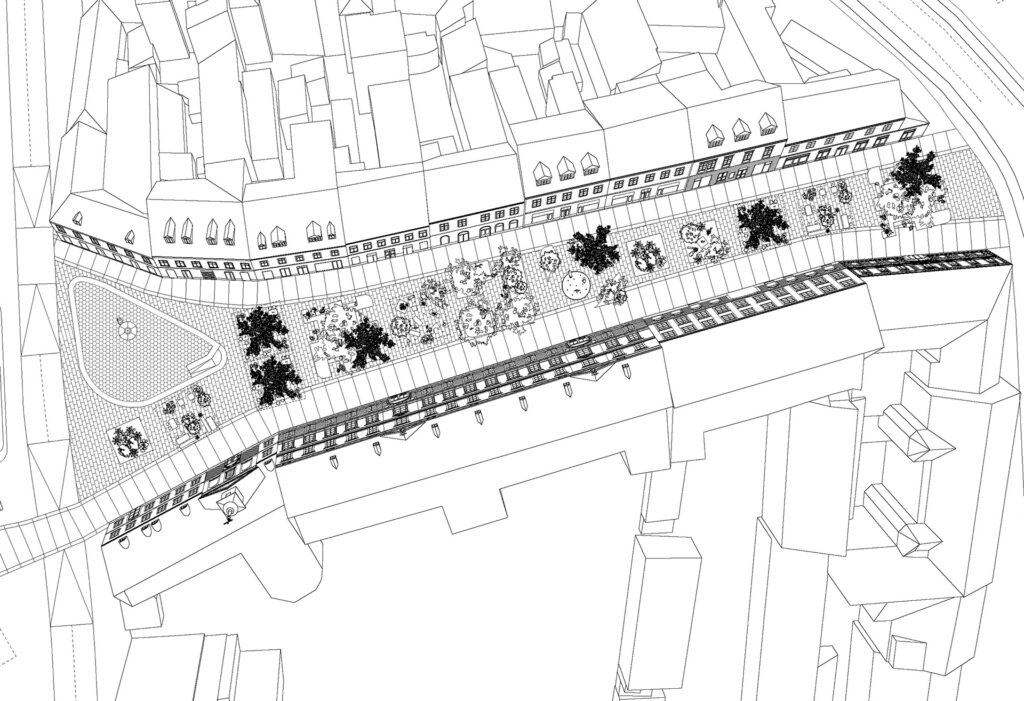
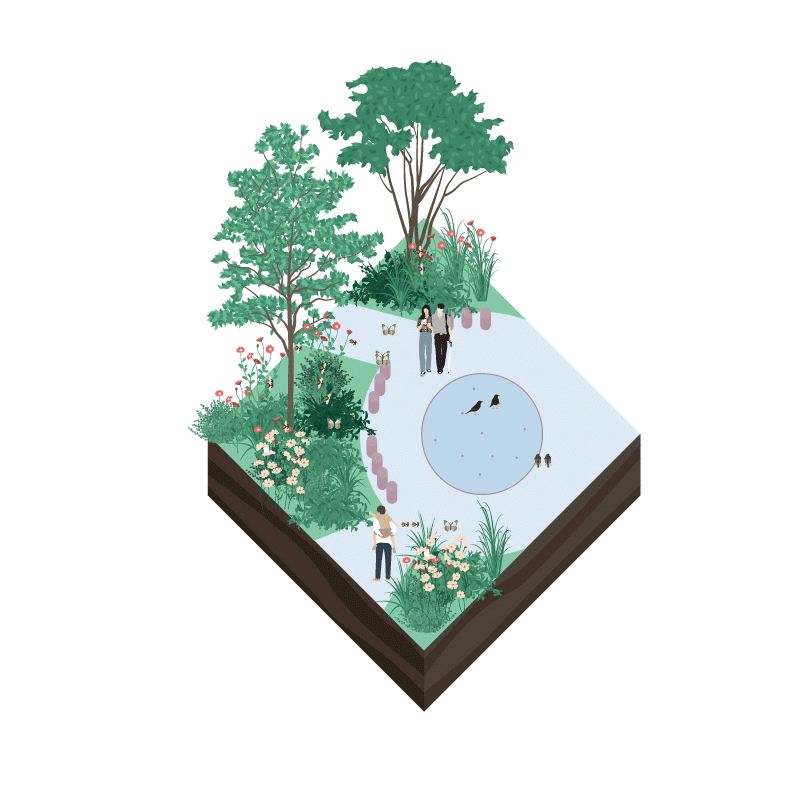
Working with the already modular and repetitive paving systems found across the city, especially within the pedestrian zone of Zagreb’s center, the project proposes to simply replace small paved areas by inserting the green and public modules. This eliminates the need for large construction projects and allows a step-by-step approach to changing the ambient of the city center from that of an endless paved café terrace to that of a multitude of green oases which allow plant, animal, and human life to flourish.
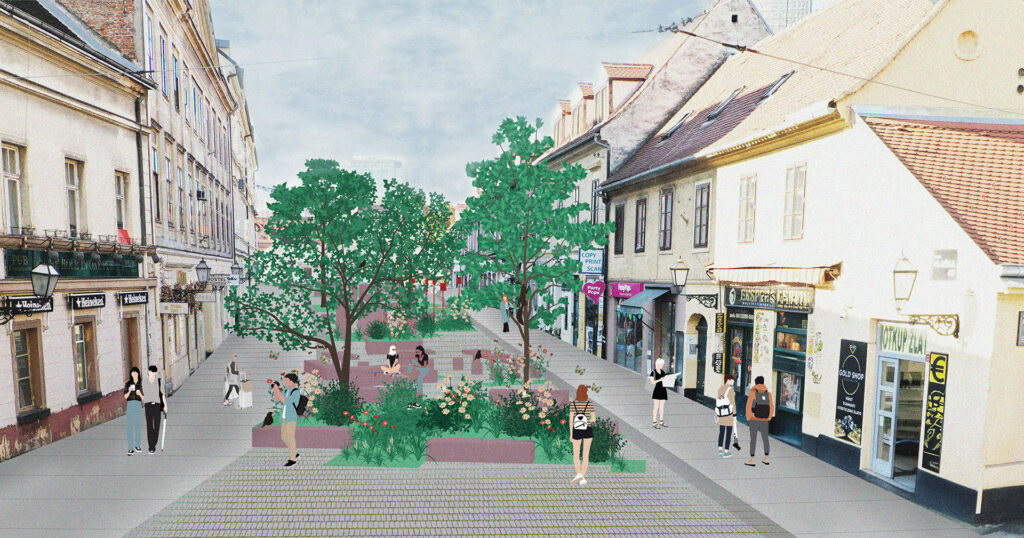
The vegetation which is proposed for the area looks not only to provide shade in summer months, but also acts as an air purifier, a water collector, a shelter for small animals, a propulsor of biodiversity. Through combining various types and species of trees, bushes, shrubs, and flowering plants, as well as various sorts of herbs, edible plants, and fruits, the modular gardens become not only an aesthetic but also a functional and productive element within the city.
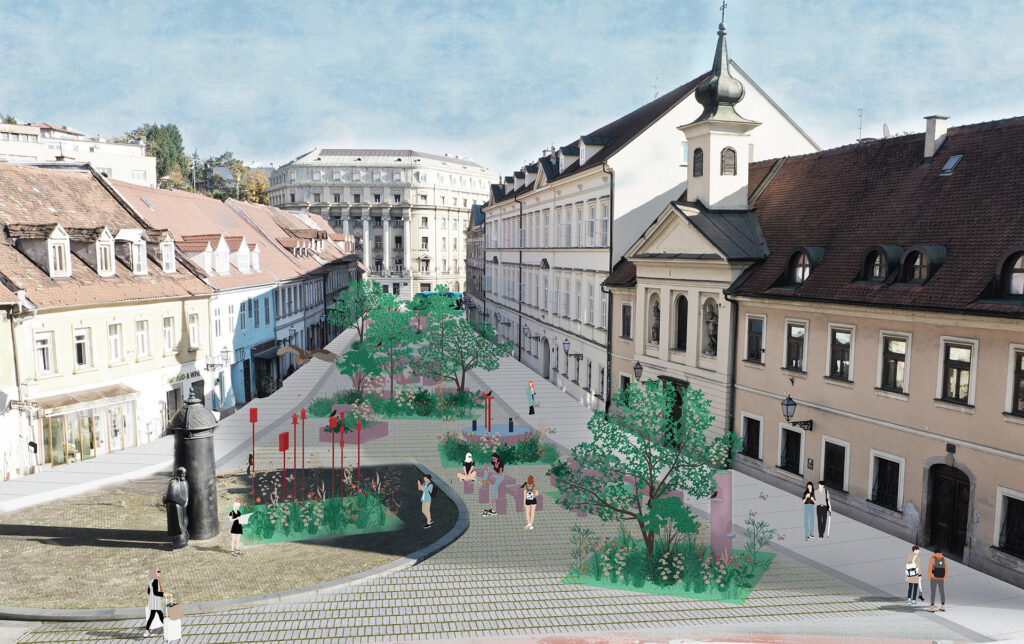
Zagreb, 2024
